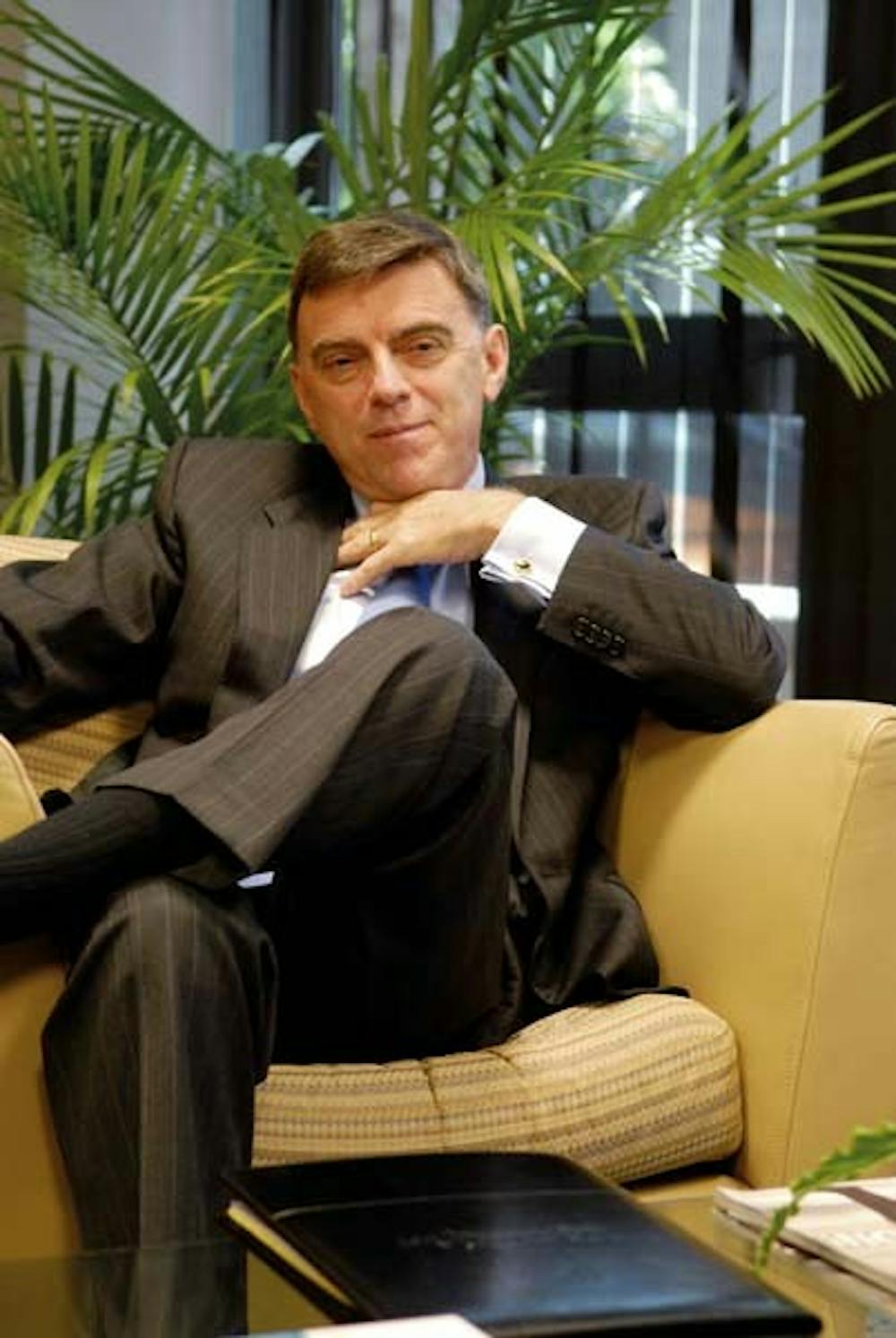
Thomas Robertson's resume spans positions at several business schools stretching from Los Angeles to London.
But Robertson, no stranger to Penn after he taught Marketing here 13 years ago, is settling in to a new office in Steinberg-Dietrich Hall.
The new Wharton Dean sat down with The Daily Pennsylvanian to discuss his goals for the year, his biggest challenges and why Wharton is in a better state than it was over a decade ago.
Daily Pennsylvanian: How has the transition been so far?
TR: It's been good. It's been fun, interesting, challenging.
At least half this job is fundraising, so I'm going to Europe the rest of this week, and then Chicago and New York a bunch of times.
DP: How has your past experience prepared you to be the dean of Wharton?
TR: I've been in business-school environment most of my life, but I've also been connected with the business community. So I have the academic side, but I've also been imminently involved with business and with government.
DP: How is this deanship going to be different from being the dean at Emory's business school?
TR: Wharton is a much larger, more complicated environment. We have a lot more programs, a lot more students, a lot more research centers.
Basically, it gets to scale and to scope. At Wharton, we do a lot more with a lot more people, and we're much more globally engaged and reach out to the world in a much more substantial way.
DP: What is it like to come back to a completely different position after almost 15 years away from Wharton?
TR: It feels really good. It feels good to be back in Philadelphia. It feels good to be back at Wharton.
Wharton in these 13 years has gotten better, I think; Penn has certainly gotten better.
DP: What are some of your immediate and long-term goals for Wharton?
TR: I think there are interesting challenges, opportunities for Wharton.
One of our biggest challenges is internationalization and what that means and where we go. Wharton is very strong. . Particularly take the MBA level: About 40 percent or more of our students are international. At the undergraduate level, it is 13 or 14 percent international.
I think the future of business is in technologies that haven't even been invented, and these technologies may very well be coming out of medicine and engineering. . We want to be aligned with other parts of the University, particularly with Engineering and health sciences.
The Daily Pennsylvanian is an independent, student-run newspaper. Please consider making a donation to support the coverage that shapes the University. Your generosity ensures a future of strong journalism at Penn.
DonatePlease note All comments are eligible for publication in The Daily Pennsylvanian.




